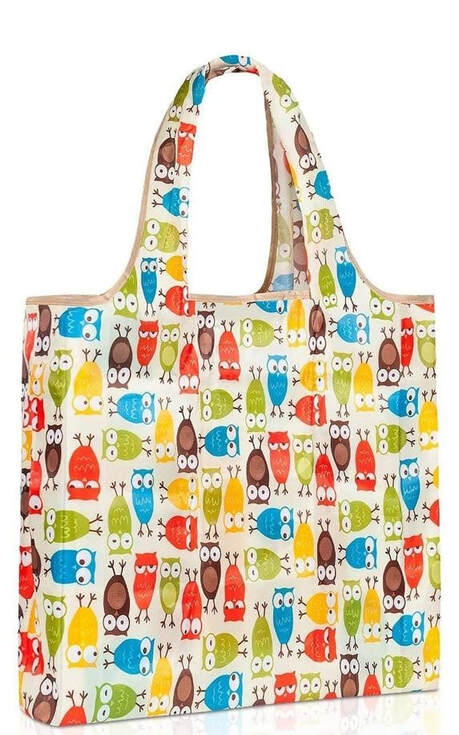 Today I want to talk about reusable shopping bags and why you should consider using them for all your shopping and other out on the town needs. If you search the great wide world of the internet you will find a lot of conflicting research done about the damage of single use plastic bags in the environment. Some people will say with compelling facts and figures that plastic bags are less harmful than paper bags or other reusable products. Others will say the exact opposite and use similar or even the same facts and figures to prove their point. I say this because I honestly don’t know which version of the argument has more merit. What I do know or at least have some degree of confidence in is the following,
Where does this leave me? What I know leaves me with the personal opinion that disposable plastic bags despite what some people say are worse for the environment than reusable or compostable bags. The facts that really sway me to the reusable bag side of the argument is the time of use and time that the bag sticks around for after its useful like is done. If you only use something for 12 minutes and then throw it in the garbage where it sits for the next 500 years that to me is much more damning than the reusable alternative. The Bag Now that I have got my philosophizing out of the way I can get to the matter at hand and tell you more about the bags I sell in The Sustainable Like Shop. Specifications
What I like about the bags There are a couple of things about the bag that I really like. One is its overall size and construction style. It’s big enough to hold a lot of things be they groceries, books, or supplies for a day at the beach. The handles are also integrated with the rest of the bag which eliminates one of the common points of failure on many reusable cloth bags. It also has a gusseted bottom which allows for easier filling and can let it stand up when full. This bag is also very light and can collapse down very small which makes for easier storage at home and in the pocket when heading to the store What I don’t like about the bags Probably the biggest thing I don’t like about the bags is that they are made of a synthetic fiber and not natural fiber While this is a durable and long-lasting fiber it is not ultimately very compostable when it’s useful like is done. However, since I will get lots of use out of this bag it is still better than disposable bags since it will get many uses by the end of its life. Final Thoughts The main takeaway I have for you on this subject is that you should always use a reusable bag whenever it is possible. By almost any reasonable assessment something you use for a long time is always better for the planet than something you only use for a little bit. Using a cloth bag like the ones I sell here are an important and easy step to living a more sustainable like into the future. Sources: https://www.epa.gov/sites/production/files/2020-11/documents/2018_ff_fact_sheet.pdf
0 Comments
Leave a Reply. |
AuthorHello my name is Josh Larson and I am the creator of the Green Living Library. Here on the blog you will find updates to content found in the Green Living Library as well as stories from those living the sustainable life already. Archives
December 2021
Categories
All
|